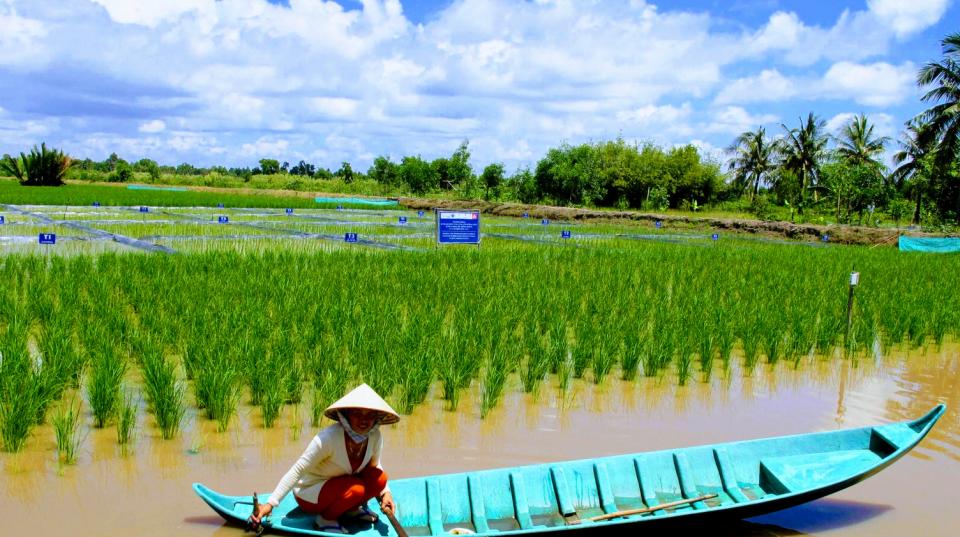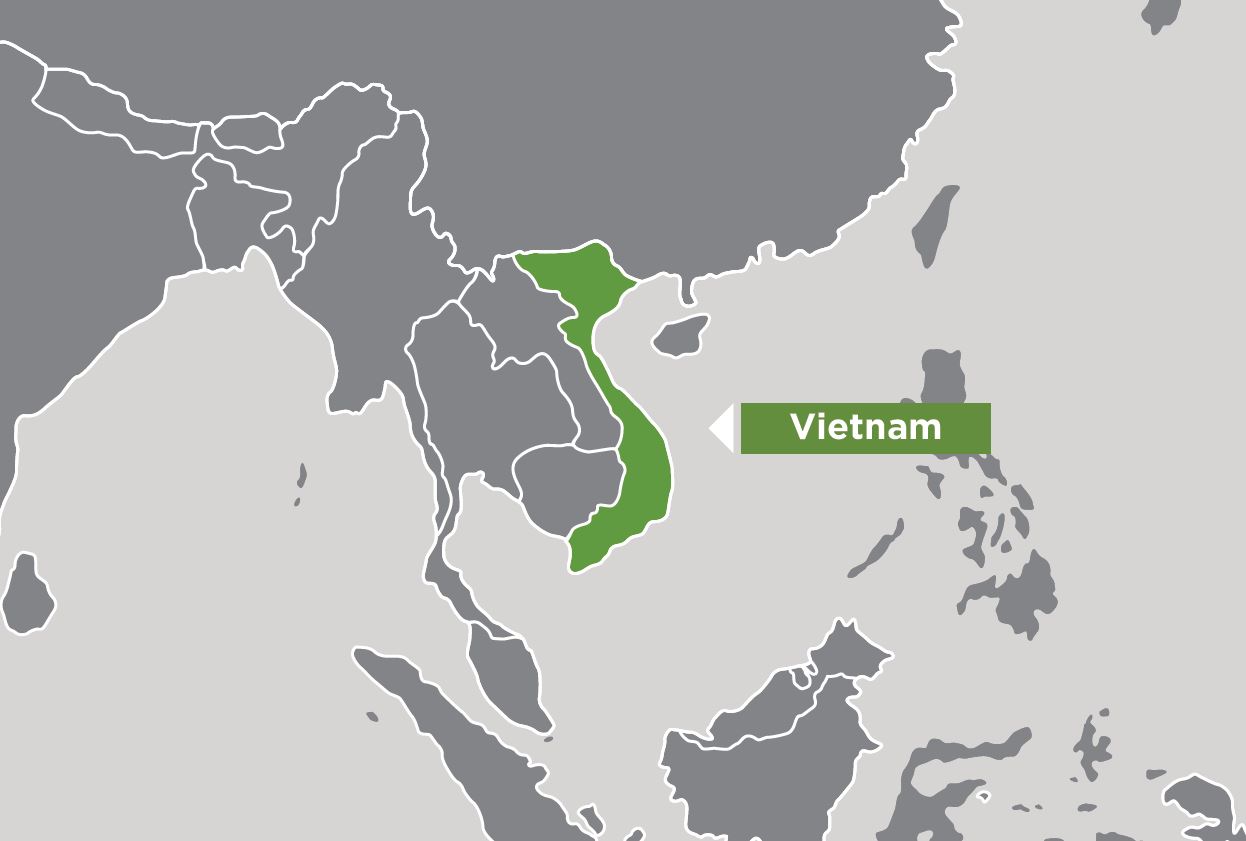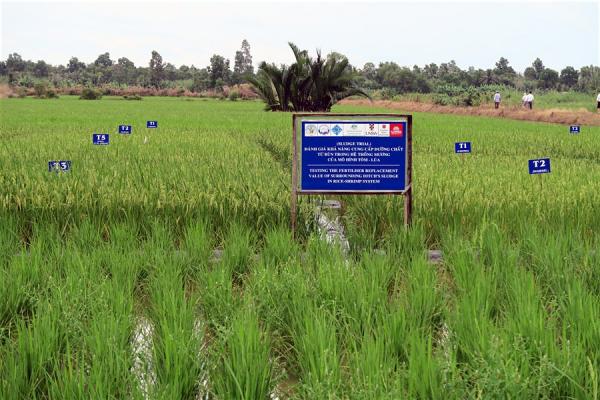Overview
This project aimed to understand the mechanisms, processes and functionality of rice-shrimp farming systems in Vietnam's Mekong Delta through rigorous scientific investigations to achieve sustainable production.
The Mekong Delta is Vietnam’s most important rice-producing region, accounting for more than half of the country's annual rice production.
Rice and shrimp have been farmed in rotation in the Mekong Delta for 40 years. Rice is farmed in the wet season when water salinity is low, while shrimp is farmed extensively and semi-intensively during the dry season when water salinity is too high for rice.
Increased salinity, a result of changing environmental conditions and catchment-wide water management, has led to rice crop losses and reduced yields. Shrimp yields have been affected by recurrent disease outbreaks.
The mechanisms underpinning the sustainability of rice-shrimp production systems are poorly understood. Further research is required on key factors, mechanisms and constraints. The research would enable scientifically-validated modifications to the farming system to increase profitability and ensure the promotion of sustainable practices.
Project outcomes
- Adopted and promulgated sustainable rice-shrimp farming systems.
- Improved research, technical and extension services through capacity-building.
- Equipped farmers with better skills and knowledge and engaging in community cooperation.
- Generated reductions in on- and offsite environmental degradation.
- Enable more resilient rice-shrimp systems with fewer crop failures, ensuring greater stability of farm income and rice export, thereby aiding Vietnam’s terms of trade.
- Improved farming practices leading to greater efficiencies in production, decreasing the quantities of inputs, such as fertiliser, and increasing profitability.
- Adopted technologies enabling farmers to earn income from salt-impacted areas no longer suitable for rice monoculture.
- Creating an opportunity for more efficient expenditure of research funding from the introduction of the Bayesian belief network (BBN) methodology.







